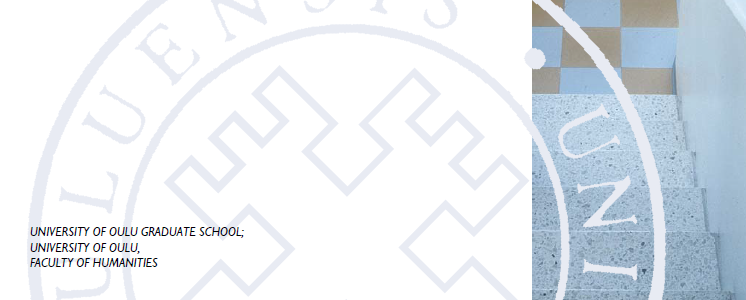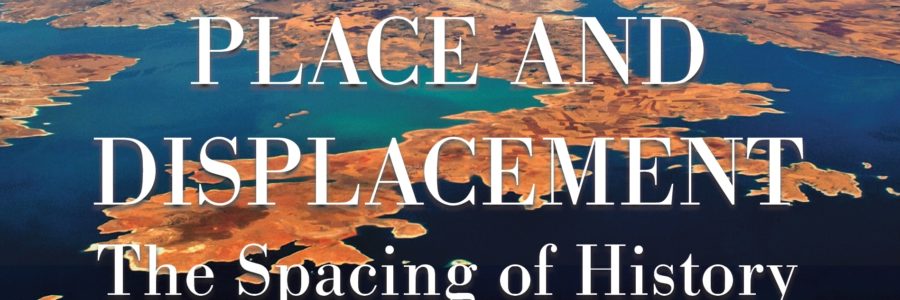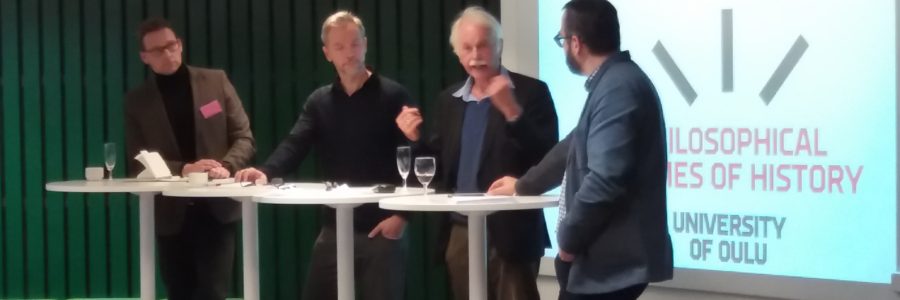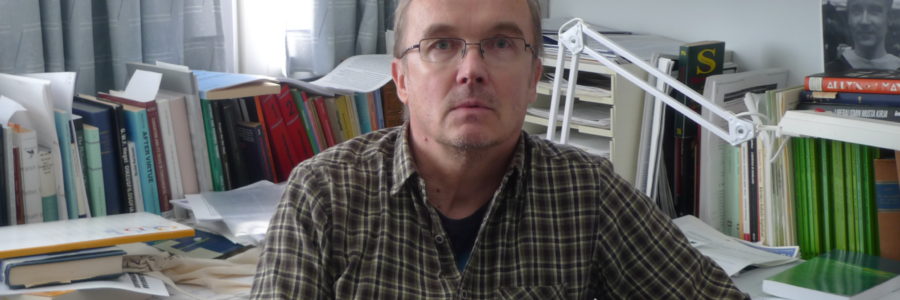The third installment of International Network of Theory of History’s biennial conference series took place August 20. – 22. 2018 in Stockholm. The two previous iterations of the conferences took place in Ghent, Belgium (2013) and Ouro Preto, Brasil (2016) INTH conferences are a very important event for the field of theory (and philosophy) of history as it is not yet a very solidly established research field in the academia.
Rethinking Historian’s Expertise -network had a large representation on the premises with several of its members presenting their work in different sessions.
Rethink Networks Representation at the Event in Alphabetical Order
Jonas Ahlskog: Existential history and the presence of the past
Jonas delved into the concept of “presence” by discussing R.G. Collingwood’s works in relation to the contemporary discussion of presence that has been going on by for example Eelco Runia.
Natan Elgabsi: The Reality We Must Face
Natan took a dive into the idea, originally presented by Cora Diamond, called “difficulty of reality” and how the idea responds to descriptions of the past. In his talk Natan brought forth the interesting (and important) question of how incapable we are to engage with the real experiences of past people through textual descriptions and how reality in text is more of a style of representation than anything relating to the actual.
Jouni-Matti Kuukkanen: Redefining the critical and conservative writing of history
Jouni-Matti is leading a research project called “Microhistorical Epistemology” that looks into the practice of history. He gave a short overall description of the whole project before giving his personal presentation as the project had a whole session to itself with four presenters. In his personal presentation Jouni-Matti analyzed one of the fundamental differentiations of historiography between description and interpretation.
Ilkka Lähteenmaki: The Curious Case of Alexander I’s speech in Porvoo – A case study of source usage in a historical debate
Ilkka showcased some source-network graphs he had created from a long lasting historical debate in hopes to uncover some unvoiced standars in historians practice of using sources to make arguments. Ilkka is also part of the “Microhistorical Epistemology” project run by Jouni-Matti Kuukkanen.
Kalle Pihlainen was part of plenary panel (with Ewa Domanska, Paul Roth, María Inés La Greca, Xin Cheng, and Veronica Tozzi) called: Globalizing Hayden White: A tribute to his work
The plenary was held partially in memory of the late Hayden White and partially to celebrate his truly global legacy. Kalle’s focus was on the constructivist aspects of White’s work.
Marjaana Puurtinen: The making of historians. Young academics’ views on the concept of ‘history’.
Marjaana discussed her work that she has been doing with Mikko Kainulainen and Arja Virta which looks into how history students conceptualize history. This time her presentation focused in one question they had presented to history students: “How would you visualize ´history´?” which got some interesting answers.






